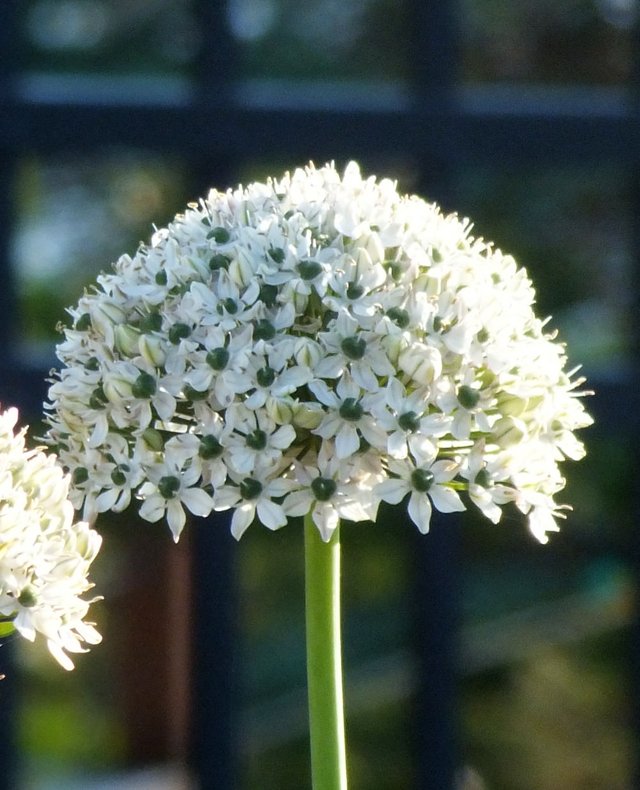Home Schooling And Unschooling; an Adult Retrospective, Part II: Benefits and Advantages
This is part two of a four part series about a 50-something adult's look back at life, having grown up largely unschooled and home schooled. If you're interested, Part One (a bit of background) was published yesterday and you can read it here.
Everything is a Double Edged Sword

The view from here...
I realize there are a lot of parents out there who might believe unschooling is the be-all, end-all answer to everything. Whereas that is certainly a nice positive attitude to have and share with your children, I would like to toss in the caveat that there are pluses and minuses to pretty much everything in life.
I make this statement addressing a number of different "levels of experience" not just the overall choice to unschool/home school.
Some of the things we learn through a self-made education may be awesome in certain respects, and actually get in our way in others... given that we are, to some degree, "outsiders."
This second of four articles covers the advantages of unschooling/home schooling as I have experienced them; keep in mind that these are merely my personal experiences and not some sort of rule.
Note, also, that some of the things I list as advantages may also show up again in tomorrow's installment as DIS-advantages, merely illustrating the duality of much of life.
MASSIVE Benefit: Thinking For Yourself!

White flowers
If there is a single "biggest" lifelesson I gained as a result of growing up the way I did, I would have to say it was learning how to think for myself; how to reason things through; how to "figure things out" when confronted with something challenging I didn't really understand.
There was no "Great Minds Think Alike!" at our house... there was only "Great Minds Think for THEMSELVES." And even though my parents were often not all that directly involved in my learning processes, the singular thing they drilled into me was that I had to think, not just blindly ask questions, whenever I found myself facing an obstacle.
Thanks to this-- as an adult-- I have tended to not think "in" or "outside" the proverbial box... but to simply not have a box, in the first place. I also realize-- as an adult-- just how much the world seems to depend on "canned answers" other people have already come up with.
Hands-on vs. "Book" Learning
I think there is a lot to be said for the theory that people have different learning styles, or-- at least-- we have ways in which we are most comfortable and adept at learning.

Backlit maple leaf
It was actually through my limited exposure (not counting college) to conventional schooling that I came to understand that I would have struggled enormously with school, had I been there the entire K-12 years. I don't learn much from someone droning on at the front of the class, taking notes and then that's supposed to be "teaching." In fact, "lectures" tend to put me to sleep.
The way I learned at home-- wherever in the world we might have found ourselves at any given moment-- was awesome because whatever the learning was, was typically right there; I could touch it, and see it, and absorb it. It wasn't just "a theory." It could be my dad, showing me how to use a magnifying glass to start a fire when you didn't have matches, or it could be my mom (who was very into printmaking and printing on fabric) showing me how you could use things from nature to create colors and dyes.
To the degree I used books at home, I was able to do what I was most comfortable with-- pick one detail and thoroughly understand it before moving onto anything else.
Seeing the World

Spring flowers
Of course, I recognize that "moving around like global nomads" is not a standard thing, no matter whether you're self-schooled, or not. However, all these years later I can look back and feel blessed that I got to see all the places and cultures I did, as an integral part of my education as a human being.
We lived in 12 countries on three continents by the time I was 18.
There were a number of years-- mostly in my 20's-- where I felt pretty ambivalent about the whole experience. I felt like there was "something missing" because I really didn't have a fixed point anywhere that I could emotionally "attach to." I also felt sad that I had never gotten to live and grow up "in a neighborhood" with the same group of kids as friends for my entire childhood. Those feelings gradually faded, over the years... and now I can look back and say: "Wow, that was pretty amazing!"
Learning at my Own Pace
Another thing I would definitely call an advantage was that I was able to learn things at my own pace.

Evening sun
What I should add here is that I had (and have) what the medical establishment would describe as ADHD, meaning that staying focused was often difficult for me. I tended to be an "all or nothing" sort of learner needing to engross myself completely in something for several hours/days, at the end of which I might be quite "expert," while learning in "little bits and pieces" might not have worked as well.
It suited me well that I could focus on "nothing but the countries of the world" for two weeks straight, or something like that.
It also suited me really well in terms of learning when I felt enthusiastic about something. In retrospect, that might be another of the biggest benefits: During my limited years of "conventional" schooling, I had a great deal of trouble truly learning and understanding things when I was "not in the mood." The best way I can describe the "net benefit" is that my "learning density per hour" was much higher when I just went at my own pace at home.
I will add though-- and this will be covered in part 3 tomorrow-- that this also had its disadvantages in certain situations.
Developing My Strengths
This is perhaps a partially philosophical advantage, more than a functional one: I believe we're better off being specialist-experts at certain things rather than "generalists."

Summer flowers
Most of my education allowed me to focus on the things that really interested me — so I became really good at them: Writing, Numbers (particularly statistics), world cultures and geography (I was fascinated by the ways land influenced weather, and how that affected what could grow in any given place), astronomy and hands-on topics like growing things and building things.
"Can Do" Attitude and Problem Solving
Perhaps an extension of "thinking for myself," one of the benefits I notice-- particularly when comparing my approach to that of others who had "regular" schooling-- is that I seldom perceive very many things (challenges, obstacles) that come my way as insurmountable or "road blocks."
Where a lot of people might see the task of moving a 1000lb boulder from one end of their yard to another as a case for "calling a guy with a backhoe," odds are you can give me a couple of hours to think about the problem and then I could do it with my bare hands, for 1/10th of the cost.
Now, some of that was specific to my parents who considered it "a waste of money" to call for outside help till you had thoroughly evaluated every conceivable way to do something yourself, first. With the exception of some electricity and plumbing, and working on late model cars (because everything is computerized!) that's a trait I retain to this day.
Self-Direction

Vinca
I tend to be very self-directed. I am calling this an "advantage" because I feel it has been, in my experience. I have been an entrepreneur in one way or another for most of my life... it's an extension of a love of problem solving, for me.
In terms of truthful disclosure, I will add that my tendency to "work for myself" (currently for 21 years straight) rather than hold "regular" jobs is at least partially due to one of the disadvantages I will talk about in the next installment: I don't "play well with others," especially when it comes to complex problem solving and I am expected to work with-- and be respectful of-- someone who's clearly not very competent.
I tend to have a "Let's SOLVE the problem" approach rather than a "let's TALK endlessly about solving the problem" approach. And that doesn't always play well in group settings.
Lest this sounds a bit arrogant, I'll add that this "attitude" of mine is specific to working; I'm quite content to hang with people of all aptitudes and ages when we're in a casual environment.
About This Article Series
After starting to write this story (or "mini memoir"), I quickly determined that it would become far too long for a single post/article.

Peony
Thus, I decided it would be best to break it into four parts, which I will release on a daily basis, over a period of four days. Part 1 offered a bit of a background view, mostly because my education wasn't exactly "boilerplate" anything, and I was hoping to present an account people could put in perspective. Part 2 (today) took a look at what I retrospectively would consider the life benefits I derived from an "alternative" education. Part 3 (tomorrow) will take a look at the disadvantages and drawbacks of my alternative education — and yes, there definitely were some. Part 4 (on Friday) will look at how an alternative education played out and influenced a completely conventional college experience; along with a conclusion of the entire experience.
I hope some of you will find this useful, educational, informational or at least mildly entertaining! Comments, as always, are invited and encouraged, and I will do my very best to respond to questions and inquiries and requests for clarification!
 Animated banner created by @zord189
Animated banner created by @zord189
(As usual, all text and images by the author, unless otherwise credited. This is original content, created expressly for Steemit)
Created at 180308 00:50 PST
I appreciate your post .
Very much effective post .
I am glad you write on such a good topic .
Carry on dear . best of luck .
Have shared some great photography ..... and your post is very good to me ... i think you can create great posts ..... waiting for your next post ..... thank you
wow...wonderfil post @denmarkguy i like your Home Schooling And Unschooling; an Adult Retrospective, Part II: Benefits and Advantages pos.. thanks for sharing post.
I think, Parents who wants to homeschool their children but still have some reservations about it should take time to consider the positive and negative aspects of homeschooling. Homeschooling can be very stressful, but it's also rewarding. However, homeschooling is not for every parent, and parents unprepared or unwilling to make the commitment to be an effective teacher should avoid it.
By the way lovely photographs.
Dear Sir, if you have free time, please visit my Blog.
https://steemit.com/photography/@pijon/my-photography
I think childs first teacher is his mother, his schooling starts from her, If she is a better teacher the schooling of the child will have a good start, and I dont think schooling is Important, one can learn a lot from self studying then going to school, the lengends who have contributed to physics, chemistry, geography I don't think they went to school, they just did self study and had an innovative mind.
Home school is an essential part of life. The family is regarded as the primary agent of socialization because this is where all learning and socialization should and MUST begin. Where this is absent, the adulthood of the child suffers
wow,excllent post,thanks for sharing
/ᐠ.ᴗ.ᐟ\
lol- loving this topic!! our family is of the Unschooling ilk- and also trekking around the world. My kids in the past 8 years have lived in Canada, the Congo, Morocco, Australia and now we are in Malta. they have learned so much about LIFE and experienced huge amounts of history and geography and even science, just from our various travels. No, I don't tell them what to study, nor do I worry about it. They each have their own passions and they will turn those passions into their own future. My 15 year old daughter @quinlinwillow is an author (wrote her first full sized novel at 13), a scuba diver, and is getting ready to learn emergency first aid while working with the local Emergency Rescue Teams and is teaching herself photography with the aim of getting into underwater photography. My youngest daughter taught herself autoCAD at 10 years old, because she LOVES to build stuff and finds engineering fascinating. My older son taught himself to read at 7 years old and in 3 months was reading at a grade 5 level, he has an eidetic memory when it comes to facts and continuously reads about animals & biology, and at the age of 10, knows more about reptiles and various hominids than most university students..... my youngest is 8, doesn't want to read, doesn't want to write.... he just wants to imagineer through play, and I'm completely fine with that :D
having said that.... unschooling, or even homeschooling isn't for everyone. Some people cannot handle the thought of being engaged in the educational process or taking responsibility of guiding the learning process of their younglings. to each their own!!
d

I think your family did a great job in shaping your life. We should all teach our children to reason certain things out on their own as this will help them to grow up and be responsible adults.
In my clinical years, I have been taught in details about Attention Deficit Hyperactivity Disorder. These are some of the points.
-madeup of inattention and hyperactivity.
-the child finds it difficult to concentrate in one task and is easily distracted by things going on in the environment.
-finds it difficult to listen when spoken to.
-finds it difficult to take notes during lessons.
-finds it difficult to organize his tasks. etc etc
Moreover , I've actively involved in the management of children with ADHD and I'd say that growing up to be the person you are today required a great deal of effort and this is quite commendable.